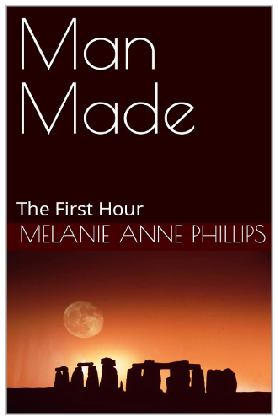|
Write Your Novel
Step by Step
|

Read the Science Fiction Thriller
From the founder of Storymind
Man Made follows a mysterious force as it sweeps around the globe erasing anything man made - from buildings, vehicles, and technology to medicines, clothing, and dental work.
Governments stagger under the panic, religions are at a loss for an explanation, scientists strive for any means to stop or divert the phenomenon, and the world’s population from families to individuals struggle to prepare for The Event, which will drive humanity back beyond the stone age.
The Event is coming.
Are you prepared?
~ Step 17 ~
Gender Specific
For every character you are going to want to check the gender box on their interview sheet: Male, Female or Undecided.
Most characters will have an obvious gender, though some (like a shark or the wind) might be neuter or indeterminate. Usually, a gender helps the reader know how to relate to a character, as it is one of the first things humans instinctively try to determine, right after friend or foe.
Gender alters our entire sense of a person, critter or entity, so note one for every character in your list, if you can. Don’t overthink the plumbing, as it were. For now, just go with the obvious choice and we’ll mix things up a bit later on.
~ Step 18 ~
The Reason of Age
How old your characters are couches them in a lot of preconceptions about how they’ll act, what their experience base is, and how formidable or capable they may be at the tasks that are thrust upon them in your story and even how they will relate to one another.
Many authors, especially those working on their first novel, tend to create characters who are all about the same age as the author.
This makes some sense insofar as a person can best write about that with which they are most familiar. The drawback is that anyone in your potential readership who falls outside your age range won’t find anyone in your novel to whom they can easily relate. So, unless you are specifically creating your novel for a particular consistent age range, try to mix it up a bit and at least sprinkle your cast with folks noticeably older and younger than yourself.
Consider these issues while assigning an age to each character in your list.
~ Step 19 ~
Other Attributes
Like real people, your characters will have a wide range of other attributes, such as the religion to which they subscribe, special skills like horseback riding or a good singing voice, physical traits, such as being overweight, their race, abilities/disabilities or a nervous tick, mental attributes including IQ, savantism or autism, and hobbies or other interests like coin collecting or memorizing movie quotes.
Most of these attributes will amount to no more than window dressing in your story, but some of them may ultimately affect its course, and key events in your plot and/or message may hinge on a few of them.
There’s no absolute need at this point to add any of these to each character’s interview sheet – we’ll revisit this kind of material later in the development stage – so don’t go off into the woods on this one.
Still, if any additional attributes come to mind while interviewing your characters, jot them down as they will enrich your character and make them far more human and accessible to your readers.
